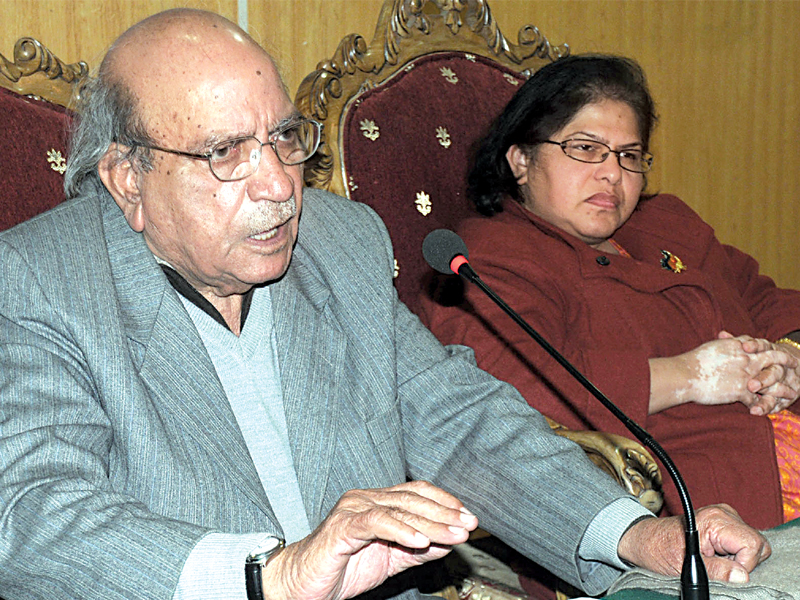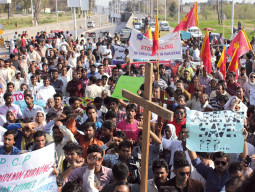
KARACHI: South Asia is in the grip of fundamentalism, and militant and religious groups are using religion to divide its people, said Human Rights Commission of Pakistan’s I A Rehman.
He was speaking during a two-day conference on ‘Religious Minorities and Human Rights: Challenges and Opportunities’ organised by Pakistan Institute of Labour Education and Research (Piler) at Regent Plaza on Tuesday.

A member of Pakistan Peoples Party, Saeed Ghani, criticised the party’s failure to confront extremists in spite of having had the opportunity to form the government.
“Extremists have penetrated all the major political parties,” he observed. “If they become a part of the parliament, it could be destructive for the country.”
The executive director of Piler, Karamat Ali, felt that there was a similarity between the problems faced by various religious minorites in South Asia.

“We haven’t had a census in Pakistan for a while now so we don’t have exact population figures, including those of the minorities,” he said. He felt that the increasing persecution of minorities in South Asia was connected with the increasing militarisation of the region.
Another member of the organisation, Zeenat Hisam, felt that a weak judicial system was to blame for Pakistan’s inability to protect its minorities. “This is also why they do not have representation in powerful institutions, such as the parliament,” she said, adding that school curriculums contain hate material that targets children of minority communities and further marginalises them.
People are misinterpreting Islam for political gains, said a member of Bangladesh’s parliament, Mayeenuddin Badal. “A research institute should be set up in South Asia that attempts to understand religion so that it could be interpreted correctly,” he proposed.
Bangladesh’s Dr Amena Mohsin said that her country was at a critical point in its history. “Some groups are asking for the Islamisation of the state while others are demanding that blasphemy laws be introduced and Ahmedis be declared non-Muslims,” she said. She felt that the introduction of these laws would have a direct impact on the conditions of minorities. “If you promote one religion, it will have an impact on other religions.”
India’s Mazhar Hussain felt that the South Asian states should form a coalition to protect minorities. “Seven years ago, all the key constitutional positions in India belonged to different minority groups, including Dalits, Parsis and Muslims,” he recalled.
He felt that there are more opportunities for Muslims in India even though they are a minority. “The situation for minorities is worse in Pakistan, Nepal and Sri Lanka than in India,” he added. He also felt that violence towards minorities in India and Pakistan increased when elections drew closer.
Published in The Express Tribune, April 10th, 2013.
COMMENTS (3)
Comments are moderated and generally will be posted if they are on-topic and not abusive.
For more information, please see our Comments FAQ



























































If its the majority and its a democratic country......aren't you the intolerant one for not accepting the will of the public?
Please correct the heading of this. The word "Military" not used in the complete published report than it seems addition of this word in the heading.
Jinnah's pakistan, living up to his dreams!